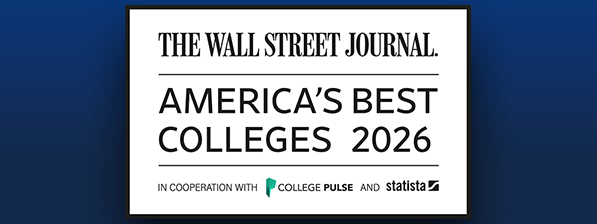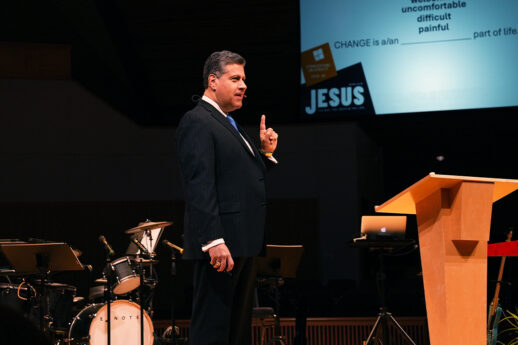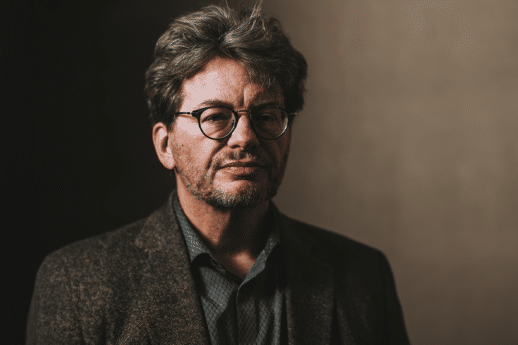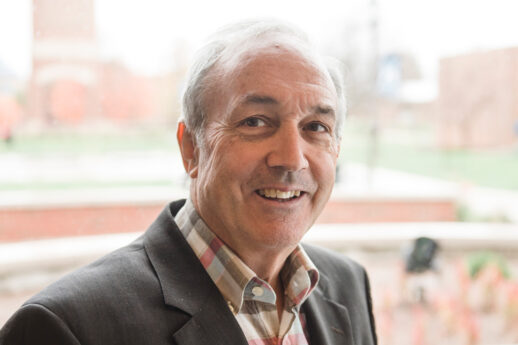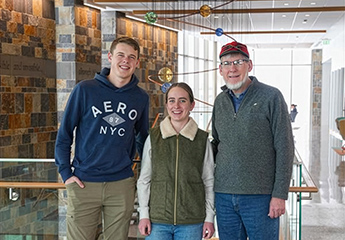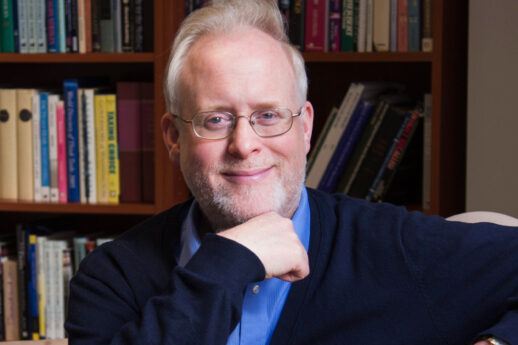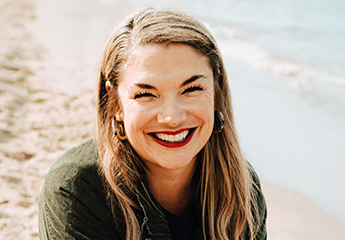Wisdom Conversations VIII: The Family — Strengthening and Healing the Fabric of Our Nation
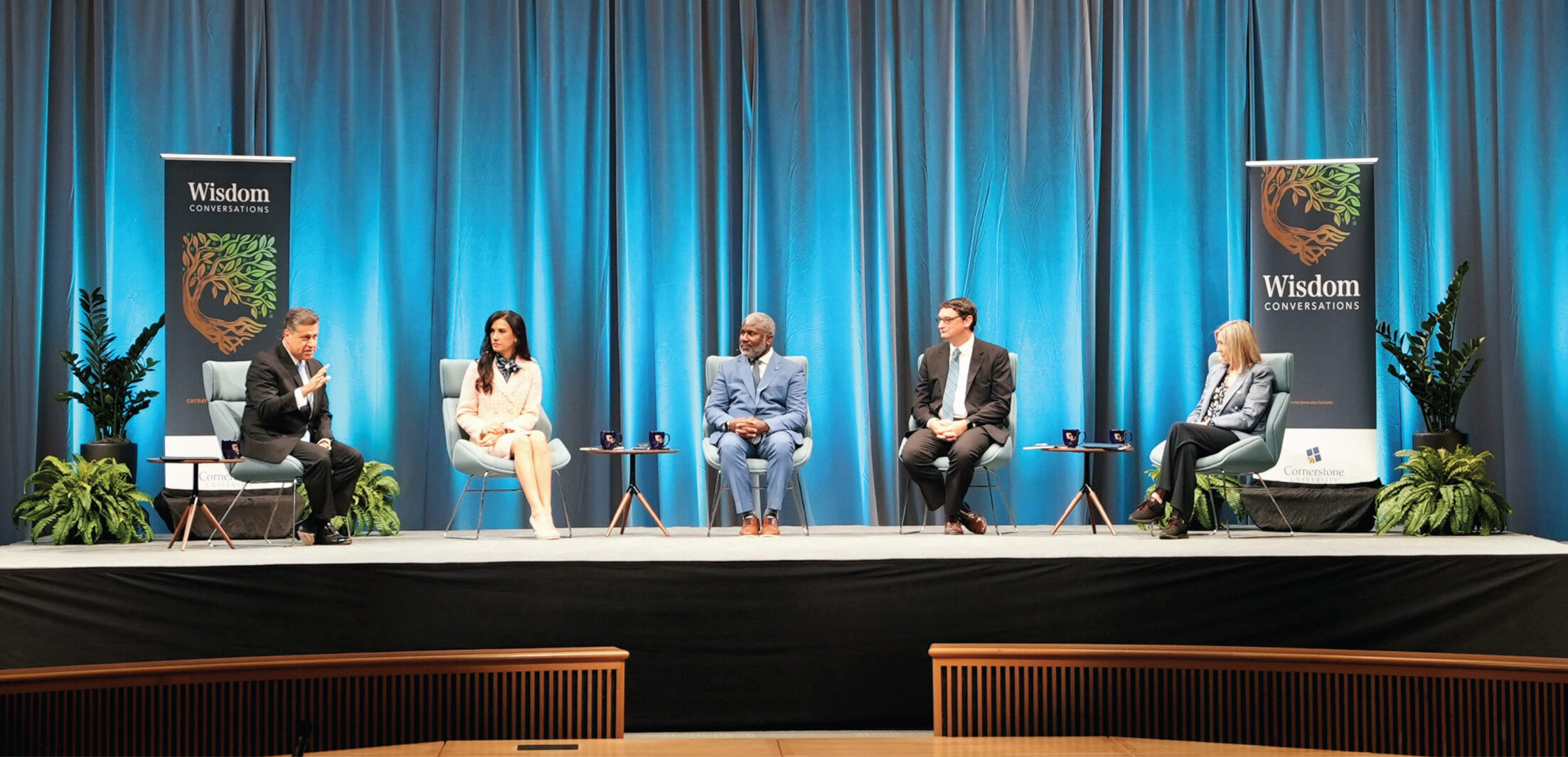
“Tonight you are going to hear the importance of being family-focused and being Christ-focused — able to boldly speak those messages to others,” said Tudor Dixon, political commentator, host of The Tudor Dixon Podcast and Cornerstone University National President’s Fellow, as she welcomed close to 700 students and community guests.
Her words set the tone for Cornerstone University’s eighth Wisdom Conversations, an urgent discussion centered on The Family: Strengthening and Healing the Fabric of Our Nation. Guided by President Gerson Moreno-Riaño, the evening confronted one of America’s deepest questions: Can the family be restored — and with it, one of the moral pillars of our communities and nation?
The evening featured a lively and profound exchange between Dr. Christina Hoff Sommers, philosopher and author of “The War Against Boys”; Ian V. Rowe, co-founder of Vertex Partnership Academies and author of “Agency”; Patrick T. Brown, fellow at the Ethics and Public Policy Center; and Catalina Stubbe, national director of outreach for Moms for Liberty.
Together, they explored how decades of cultural upheaval, policy missteps, and moral confusion have weakened the family — and offered bold ideas for recovery rooted in Biblical truth, virtue, and faith.
The Family Under Fire
President Gerson Moreno-Riaño opened with a pointed question: “Why has the family, once regarded as the cornerstone of human flourishing, become so contested?”
Dr. Christina Hoff Sommers traced the decline to decades of cultural and academic redefinition. She explained that in much of modern scholarship, the traditional family has been “portrayed as a site of trauma rather than love, of oppression rather than moral growth.” While acknowledging that families can be imperfect, Sommers countered that when lived rightly, family life is not a tool of control but a moral incubator. “Men and women need each other,” she said. “We are not on opposing teams. The family is where we learn to build rather than destroy, to protect rather than exploit.”
Patrick T. Brown expanded on that tension between modern freedom and moral order. When marriage is reduced to “one option among many,” he warned, society loses its bearings. “Every one of us came from a mother and a father,” he said, noting that when a culture no longer views that bond as its norm, “we lose the structures that best support children.” He described today’s moral landscape as a “supermarket of lifestyles,” where endless choices can obscure what’s truly good.
From his vantage point in education, Ian Rowe connected the breakdown of family formation to the failure of schools to teach character. “If you’re running schools, you’re in the moral formation business — whether you like it or not,” he said. “Even when you’re silent, you’re shaping character.” His charter schools in the Bronx teach the four cardinal virtues — courage, justice, temperance, and wisdom — along with what he calls the “success sequence”: complete your education, get a full-time job, marry, and then have children. “When young people follow that order,” he said, “97 percent avoid poverty. When adults stay silent out of fear, we rob the next generation of agency and hope in his view.”
Catalina Stubbe brought the conversation from institutions to culture itself, arguing that the erosion of family values is reinforced daily through entertainment and media. She pointed to the glamorization of promiscuity, pornography, and “free-sex” ideology as direct assaults on covenant love. “Marriage has a divine purpose,” she said. “When we separate sex and commitment, we destroy what makes us human.”
Restoring Dignity, Difference, and Beauty
Reflections turned to the beauty of marriage and God’s design for men and women. Stubbe put it simply: “It’s complicated to be single, and it’s complicated to be married — so choose your complicated.” She affirms that “marriage is the only design that ensures the continuation of humanity.”
She spoke of the mother’s sacred role in shaping sons to protect, guide, and serve. “The world says women must dominate or men must shrink,” she said. “But God’s model is cooperation — men and women fulfilling distinct, complementary purposes.”
Rowe agreed that we must recover the courage to speak truthfully about the ideal. In the Bronx, nearly nine in 10 children are born outside marriage. “Our students have never seen the ideal,” he shared. “We must teach it lovingly, not with shame — but with honesty about what leads to flourishing.”
The conversation turned to the growing gender confusion shaping today’s culture. Sommers warned that denying biological reality has left many young people lost. “Our schools treat boys as defective girls rather than different by design,” she said. “Men and women are different — and that’s beautiful.” Rowe and Brown agreed that compassion must never replace truth, noting that love without clarity risks further harm.
The panel acknowledged the reality of diverse families today, emphasizing that while Christians should uphold the ideal of marriage, we must do so with compassion and grace.
Charlie Kirk’s influence among young adults was noted for his unapologetic call to “get married, have children, and build a meaningful life” — a message that challenges cultural norms and restores hope in faith, commitment, and a Biblical view of family from creation.
The Role of Church, Policy, and Community
Turning toward solutions, Brown highlighted structural barriers that make family formation harder today. “Our tax and welfare systems often penalize marriage,” he said. “A couple who wants to marry can lose critical benefits simply by doing the right thing. The first thing government can do to help families is get out of the way.”
Housing costs and student debt are hidden obstacles: “If a young man feels he can’t provide a stable home, he’ll delay marriage. We have to make family life more economically possible again.”
Both Brown and Rowe argued that school choice is essential. “Imagine being a mother in the Bronx told that your only option is a failing school where 7 percent of students graduate ready for college,” Rowe said. “That’s not freedom. That’s despair. School choice gives families hope.”
Stubbe called for renewed civic engagement, urging parents to speak out and defend their rights. “When policy starts messing with your life, you have to stop or change policy,” she said. “If we don’t fix education, we lose our children — and our country.”
Rediscovering Wisdom and Hope to Rebuild
President Moreno-Riaño asked each panelist to share a final word of counsel for Cornerstone students.
Dr. Sommers reminded students that freedom and meaning grow from tradition and love. Brown encouraged relational courage — “give each other a chance” and grow together in faith. Rowe summed up the evening’s spirit with a smile: “First comes love, then comes marriage, then comes baby in the baby carriage.” And Catalina Stubbe offered a heartfelt charge of gratitude and service: “Honor your parents and be a blessing every day to someone around you.”
To rebuild the family, the panelists agreed, requires courage — moral courage to speak truth, civic courage to reform failing systems, and spiritual courage to live out the Biblical vision of love and responsibility.
As President Moreno-Riaño strongly urged the community gathering, “If we lose the family, we lose the civilization. But if we rebuild the family — through truth, virtue, and faith — we rebuild the future.”
Elijah Pleune (’27), Cornerstone University student body president and a junior in the Cornerstone President’s Fellows program, brought the evening to a close by reminding attendees that events like Wisdom Conversations nourish the soul and strengthen the Christian community. He offered a heartfelt prayer and a challenge from Colossians 3:16–17, urging the audience to let the message of Christ dwell richly among them. “Don’t just hear — act. And please don’t let tomorrow’s busyness make you forget yesterday’s wisdom.”
Enjoy the full video of the evening’s robust exchange. Join Wisdom Conversations on March 5, 2026, to hear distinguished national thought leaders Cornel West and Robert P. George discuss: America at 250: Christianity and the American Experience.
Wisdom Conversations
Wisdom Conversations is a national series hosted by Cornerstone University that brings together leading voices from diverse fields to explore the ideas shaping culture, Christian faith, and the future. Rooted in Biblical wisdom and committed to public engagement, each event seeks to foster deep reflection, civil dialogue, and actionable insight on today’s most pressing issues to benefit students and society.
